Crip News v.1
Welcome to the first issue! If you have the spoons, I'd love to know what you think. You can reply directly to this email. ❤️🔥
It’s Indigenous People’s Day on Turtle Island. What a perfect moment to check out this list of disabled, Deaf, ill, mad, & Indigenous writers assembled by Jen Deerinwater. Or push your land acknowledgment practice further and go deeper on the connections between body and land sovereignty. Or be with new vibes.
Today, Sins Invalid are hosting “Crips on Stolen Land,” a bilingual conversation with Patty Berne (English) and Antoine Hunter aka Purple Fire Crow (ASL) on Instagram Live and Zoom from 6-8pm ET. ASL, Spanish interpretation, English and Spanish CART via the Zoom meeting link posted to @invalidart’s bio at 5:45pm ET.
If today you are resting, tomorrow. And tomorrow’s tomorrow.
We are at the threshold of major action in federal disability legislation reform. The infrastructure bill and the Build Back Better Bill through the congressional budget reconciliation process could bring changes that activists have long awaited.
See the testimony of Mia Ives-Rublee, director of the Disability Justice Initiative at the Center for American Progress, about Supplemental Security Income (SSI) before the Senate.
These SSI reforms might finally deliver marriage equality for disabled people.
You can sign up for alerts about the SSI Restoration Act of 2021 on Congress.gov.
The now-moot proposed pathway to permanent citizenship for DACA recipients required postsecondary education and a record of earned income, both of which would present major challenges to disabled DREAMers. We might anticipate it being used for a future framework that must waive ableist preconditions for residency.
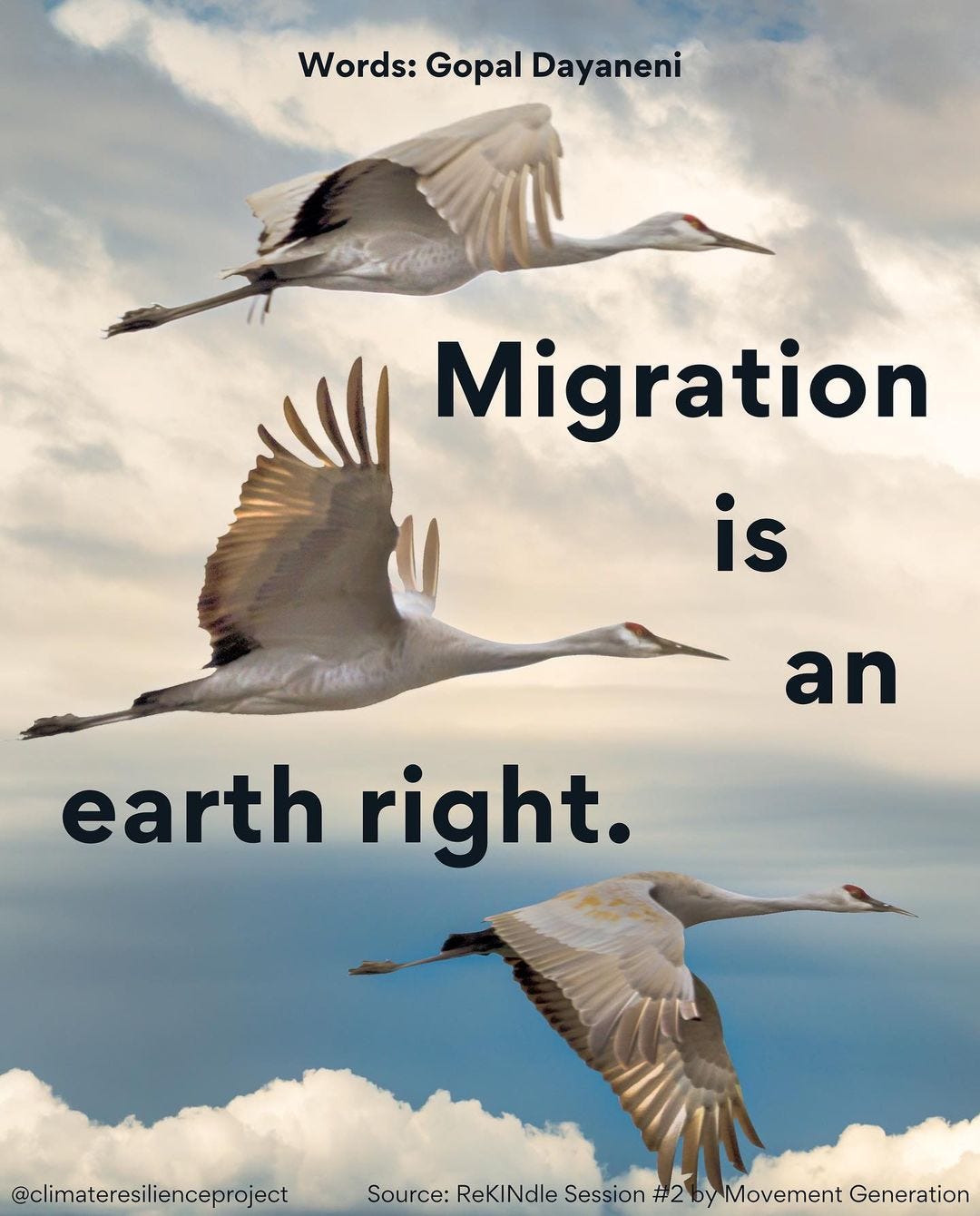
Another major legislative possibility is sorely needed funding for home and community based services (HCBS). Last week, a broad coalition of organizations held a 24-hour vigil at the U.S. Capitol to read stories of those struggling to access HCBS.
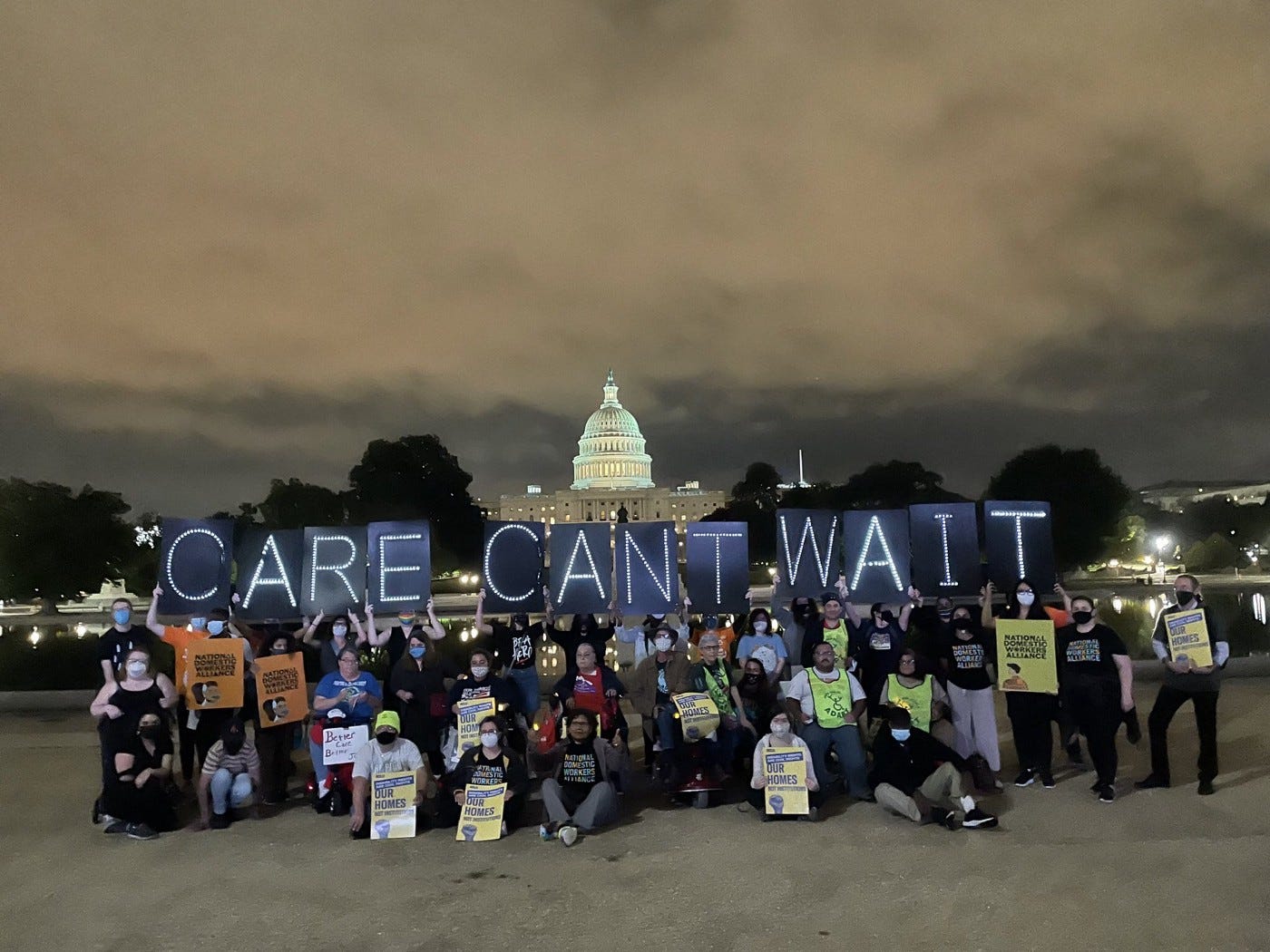
See Massachusetts Congresswoman Ayanna Pressley’s call for Disability Justice in all policy decision-making.
Maybe now is the time to universalize disability rights as a method of building and maintaining solidarity, as Ari Ne’eman proposed in the New York Times.
Beyond and outside of legislative reform, mutual aid networks activate to directly meet survival needs. Last week, Leah Lakshmi Piepzna-Samarasinha published a beautiful tribute to the small moments of disabled mutual aid on the Disability Visibility Project blog.
In other news:
The suspension of Britney Spears’s father as the conservator of her estate on Sept. 29, 2021 occasioned much-needed reflection on the relationship between conservatorships, reproductive justice, and the legacy of eugenics.
The W.H.O. finally issued a formal definition of long COVID (page 11).
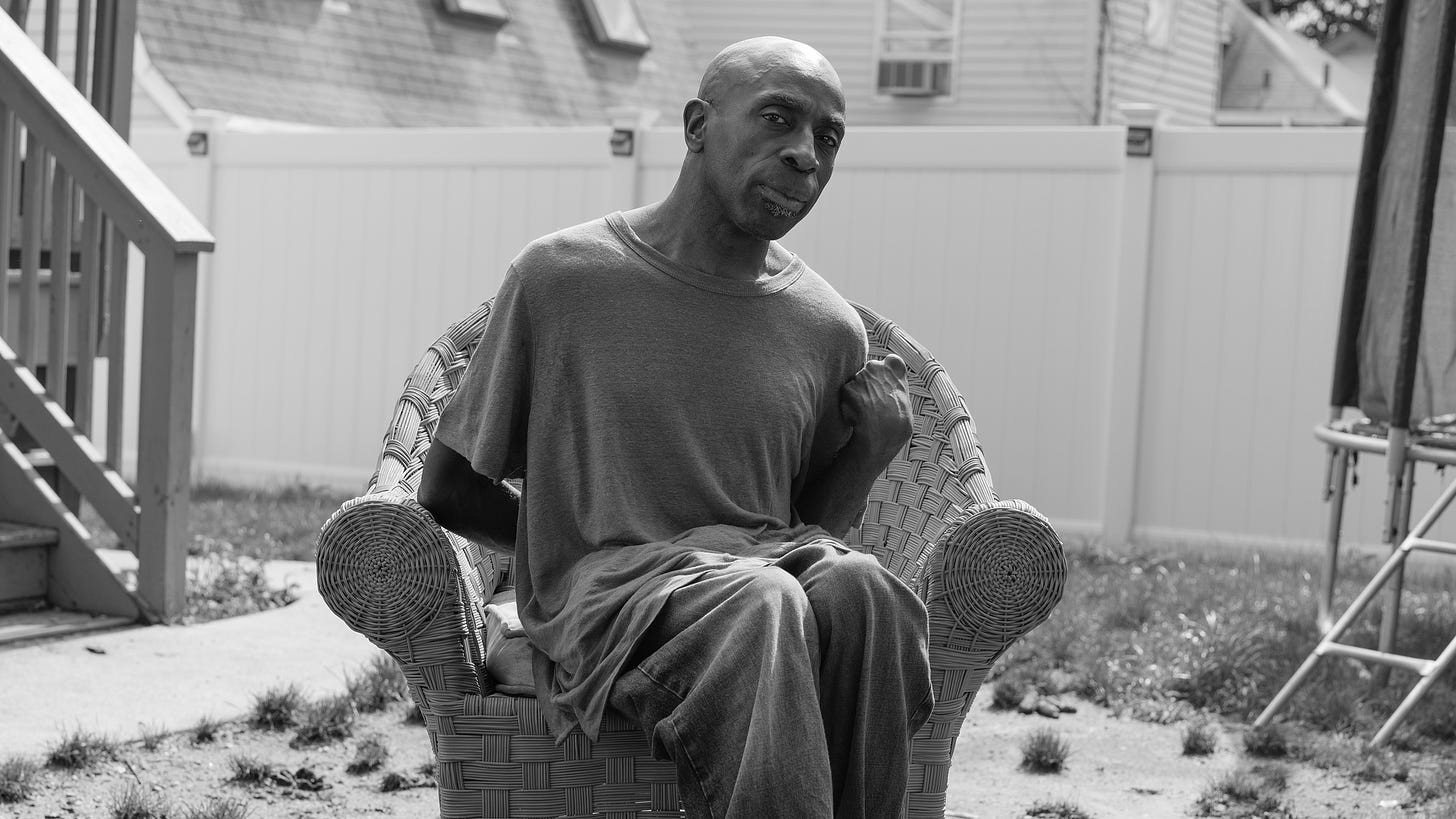
Shalene Gupta’s recent reporting on Black disability activism offers rare journalistic depth into the ways anti-Black racism and ableism are mutually constitutive.
Now, joyful stuff.
Tina Zavitsanos has been appointed the 2021–22 Keith Haring Fellow in Art and Activism at Bard College.
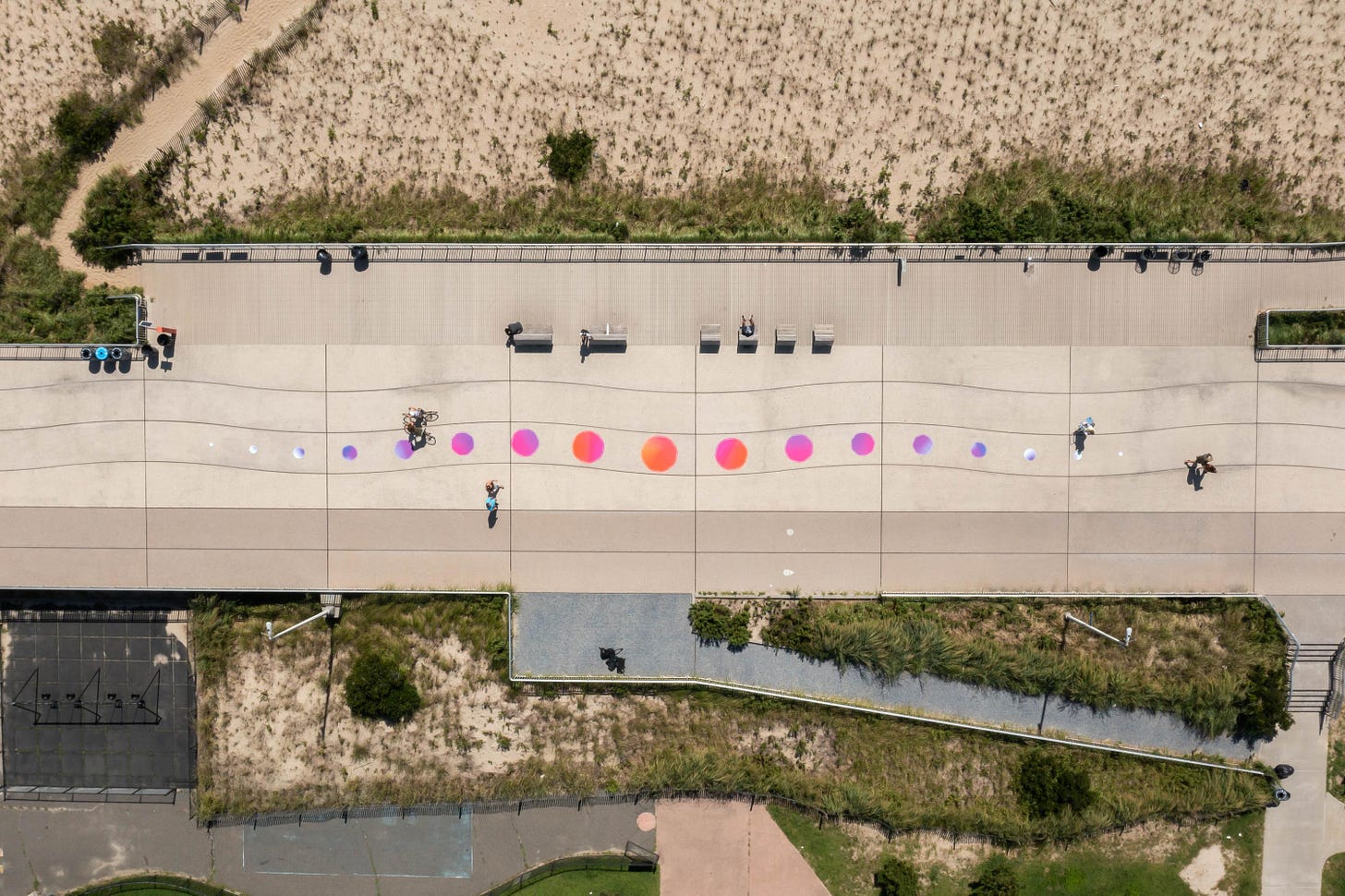
Jeff Kasper’s Soft Spots - “a highly-saturated, text-based, mindfulness path inspired by the playful style of self-help and mutual aid graphics” - is open on the Rockaway Beach Boardwalk in Queens and the Stapleton Waterfront in Staten Island. And there’s an audio tour! Now through March 18, 2022.
Y’all ready for Superfest 2021? The beloved disability film festival, produced by the Paul K. Longmore Institute on Disability at San Francisco State University, runs Oct. 15 - 17. Check out this year’s film selections ASAP.
Brandon Kazen Maddox’s newest ASL music video of Lil Nas X’s “MONTERO (Call Me By Your Name)” is not to be missed.
There are so many fabulous new issues of publications dedicated to disability arts and scholarship:
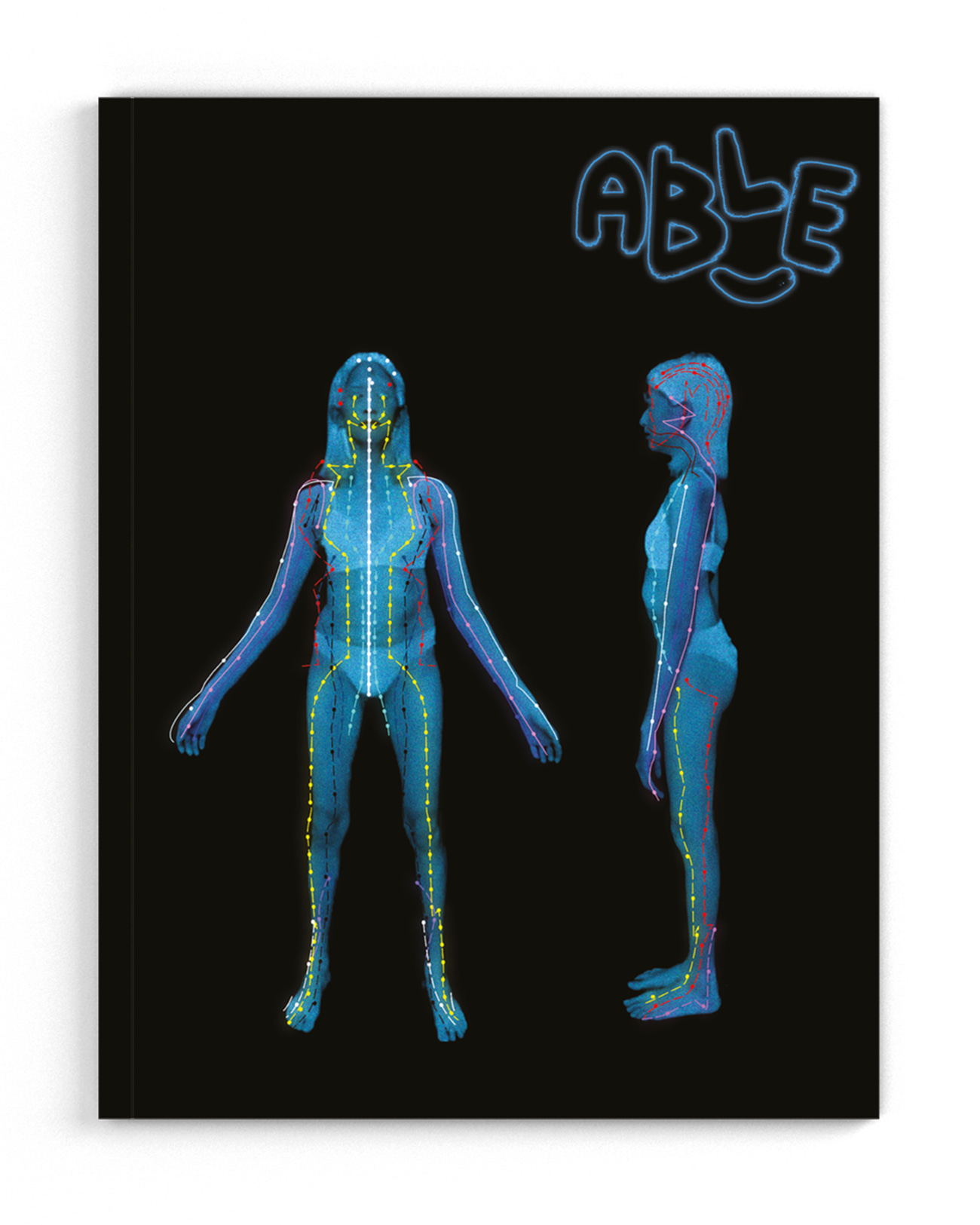
Disability Studies Quarterly. Special topic: Disability and COVID-19.
Canadian Journal of Disability Studies. Special topic is VIBE: Challenging Ableism and Audism through the Arts. In addition to articles, this issue includes creative works, practitioners’ notes, and artists’ statements.
Wordgathering, “a digital, Open Access journal of disability poetry, literature, and the arts.”
The NEA has moved the needle on disability-affirmative hiring. In a recent job call for an Accessibility Specialist, they use a special appointing authority called Schedule A to require that the role be filled by a disabled worker. This puts the hiring process in uneasy proximity to medicalized disability determination. But it represents a real and serious commitment to hiring people most affected by the agency’s work.
The U.S. Department of Arts & Culture has released a fabulous dream of broad public service employment for artists, A People’s WPA.
New York City is piloting a program to offer free mental health care to nightlife workers.
SAD Fair 2021 - “centering sick, disabled, mentally ill, and neurodiverse creative voices” - is over. But you can check out the recording from their micro zine workshop.
And now, upcoming events!
People’s Hub is offering a 2-part workshop series on “Building a Disability Politic & Access-Centered Cultures” on Thursday, Oct. 21 and Thursday, Oct. 28 from 5:30-7:30pm ET on Zoom. Choose what to pay, starting at $40. The true cost is $100. Access features by request.
Dustin Gibson is also offering “Community Care Clinics for Disabled and Chronically Ill Movement Folks” on Tuesday, Oct. 12 from 3-5pm ET and Monday, Oct. 25 from 7-9pm ET on Zoom. Sliding scale from $20-$50. Access features by request and modeled during facilitation.
The Office of Interdisciplinary Programs and Outreach at the Burton Blatt Institute at Syracuse University will offer “On Being a Vicarious Witness: Aktion T4 and Contesting the Erasure of Disability History” with Kenny Fries, Perel, and Quintan Ana Wikswo, moderated by Julia Watts Belser on Monday, Oct. 18 from 3-4:15pm ET on Zoom. ASL interpretation, live captioning, image descriptions. Other access features by request. No cost.
The Institute for the Development of Human Arts is offering a 5-part training series called “Crisis as Catalyst: Building Embodied Futures” on Saturdays from 12-3pm ET: Oct. 23, Nov. 6, Nov. 20, Dec. 4, Dec. 18 on Zoom. $85-270. ASL and live closed captioning.
Healing/Arts is offering a workshop on a trauma-informed approach to graphic medicine with multidisciplinary artist and poet-critic Kara Laurene Pernicano on Wednesday, Oct. 13 at 4pm ET, virtual. No cost. Access features by request.
Cornell’s East Asia Program will host Prof. Yoshiko Okuyama to discuss her book Reframing Disability in Manga, focusing on representations of Deaf characters, on Monday, Oct. 18 from 4:45-6:15pm ET on Zoom. No cost. ASL interpretation.
Dean Space is offering a multi-session series on common obstacles in mutual aid groups, “Building Capacity for Mutual Aid Groups, Workshop 1: No Masters, No Flakes!” Suggested registration of $5. 4 Sessions, Thursdays, 7pm ET: Oct 28, Nov 18, Dec 9, Jan 20. Live transcription and ASL interpretation.
And finally, do you like my new hat?
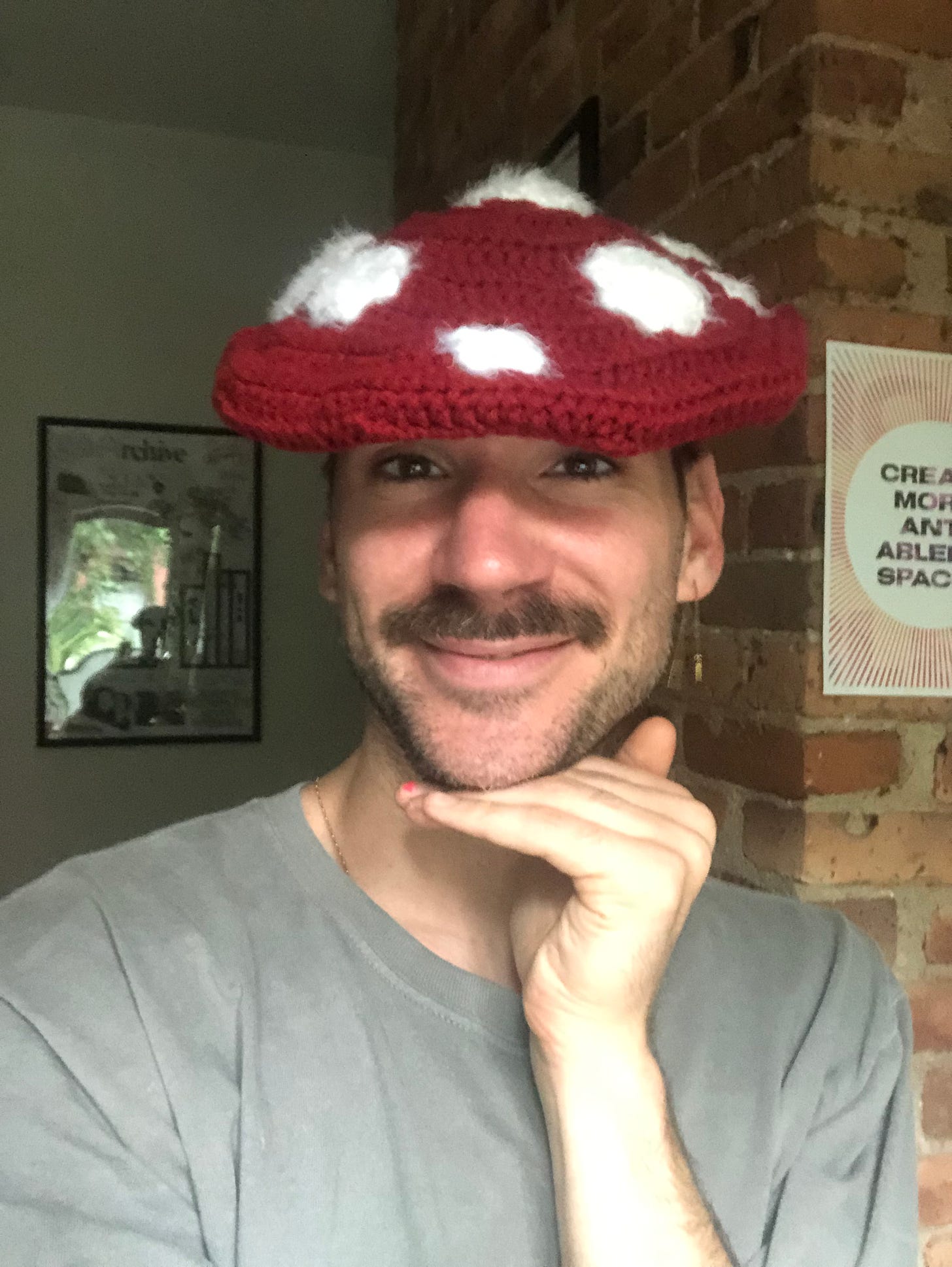
When you buy a ticket to the Fireweed Collective’s year-end bash on Thursday, Dec. 16 from 9-10pm ET, you’ll get a hat hand-made by a QTBIPOC artist. Fireweed Collective offers mental health education and mutual aid through a Healing Justice lens.



